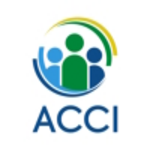
2024 Annual Conference
May 21–23, 2024
Hyatt Regency Milwaukee, Milwaukee, WI, USA
IMPORTANT NOTICE: The date, time, and room assignment of YOUR presentation is SUBJECT TO CHANGE.
Proposal authors can use this tool to see where they have been placed in the program agenda for an Oral or Poster Session.
Scroll down to search by the Submitter or Author Name, by Date/Time, or by Keywords.
Confirm your place in the schedule by following the instructionss that were emailed to you. Each presentation must have a separate paid registration. Contact the ACCI office immedicately by email at admin@consumerinterests.org to report any conflict, all corrections to the details of the presentation (including author names and the order they are listed as this is how it will be in the final program), or if you have any questions. Please be sure to reference the session title(s), date(s), and time(s) when you contact us.
A1c Role of “Buy Now, Pay Later” (BNPL) services in Household’s Credit Card Usage
Short Description
“Buy now, pay Later” (BNPL) services enabling zero-cost short-term financing for purchases have gained a lot of prominence in the recent years, especially over the pandemic. Using survey data from the Federal Reserve Board’s Survey of Household Economics and Decisionmaking (SHED), we explore the sociodemographic and financial characteristics correlated to the adoption of BNPL products. Households younger than 35 years, of racial minority are more likely to use BNPL services, whereas households older than 45, with a graduate degree or more, homeowner, and U.S. citizens are less likely to use BNPL services. Since BNPL is a short-term financing service, we wanted to examine the role of BNPL use in moderating the relationship between credit card debt management and financial wellbeing of consumers. The interaction between BNPL usage and frequencies of having unpaid credit card balances illuminated that, when used judiciously, BNPL services might mitigate the negative repercussions commonly associated with unpaid credit card debt. In a market that largely remains unregulated in the U.S., it is imperative that financial educators and consumer advocates emphasize the importance of cautious credit use and the potential ramifications of debt accumulation, ensuring that households are equipped to make informed decisions in an increasingly complex credit landscape.
Type of presentation
Accepted Oral Presentation